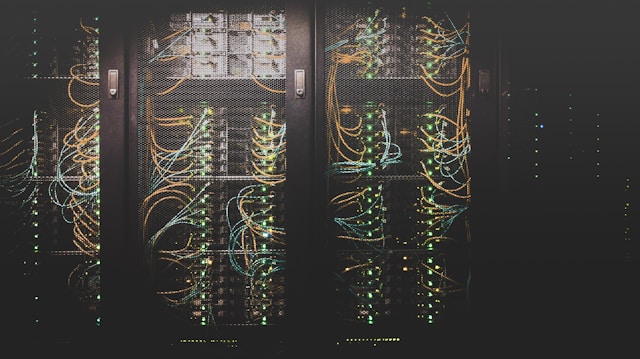Cybersecurity Within the Insurance Industry

Cybersecurity efforts with the insurance sector have faced many of the same struggles and demands as other industries. While the same cyberattack techniques have been used by criminals wanting data to hold ransom, insurers are especially at risk because of the sheer volume of unique consumer data they process on a global scale.
Everyone needs some type of insurance policy, and carriers need sensitive customer information to write policies. Technology has quickly turned this market into a big data industry because of the need for personal details to underwrite a policy. Ironically, the increased risk for insurers has not involved their databases and servers being compromised but paying claims to policyholders victimized by such attacks. This reality has brought to light the role of cyber policies and how insurance companies are facing a growing rise in data breach claims.
What Makes Cybersecurity Challenging within the Insurance Industry?
Any highly publicized data breach involving sensitive customer information can cause reputational harm to an insurer and hurt its presence in the marketplace. Cybersecurity challenges that insurers face often stem from hackers seeking to exploit weaknesses in the company's security protocols to install ransomware that holds client data hostage. This requires significant investment in not just teams of data security professionals and monitoring but also adequate training of the insurer's staff in preventing opportunities for breaches to occur through phishing emails and other data theft strategies.
Insurance companies are a frequent target because the nature of the industry requires the collection, processing, and analysis of large volumes of structured and unstructured data. Traditional security measures to prevent cyberattacks aren't always sufficient for insurers depending on the data format being utilized. Also, those analyzing sensitive consumer information may not have the necessary training to identify potential threats that might arise when accessing or transmitting this information. This has also added to increased demand for significant increases in budgeting for improved data security within the insurance space.
Cybersecurity Solutions for the Insurance Industry
Insurers are addressing growing cybersecurity threats by employing artificial intelligence (AI) and machine learning (ML) to further protect against dangerous technologies like malware and ransomware. AI and ML have proven to be better suited to the unique demands of processing massive amounts of personal consumer information quickly. This new tech has also made it possible to quickly analyze and detect any deviations from expected patterns in this information, providing a nearly instantaneous response to attacks.
This new focus on providing big data security with real-time solutions without degrading the overall performance of critical technical infrastructure has improved the reliability of cybersecurity efforts.
Growing Cyber Policies Claims Highlights the High Cost of Data Hacks
Colonial Pipeline, an American oil pipeline company, became the victim of a ransomware attack on May 7, 2021. This cyberattack resulted in a significant disruption of equipment that managed the pipeline, bringing it to a full stop that lasted six days. Several news agencies reported that Colonial had a cyber insurance policy in place, but how does this type of insurance work when a cyberattack occurs? That is the $5 million dollar question many are wondering after learning that the beleaguered company did, in fact, pay the ransom demands after stating they had no intention of doing so.
Could the cyber insurance policy Colonial Pipeline had covered the expense of the ransom they paid? This greatly depends on the provisions within their coverage.
How Does a Cyber Policy Work?
Typically, if a company under a cyber-attack has this type of policy, the insurer would step in when the system breach is first discovered, or an extortion demand is received. The carrier would assist with public responses and help the insured in its interaction with the hackers.
Expenses incurred because of the incident should be covered by a cyber insurance policy, though coverages would be according to the provisions within the terms. Costs that would be compensated could include:
- Costs for investigating the cause of the attack
- Assessment of the extent and scope of the breach
- Identifying and notifying parties affected by the cyberattack
- Related legal expenses
- Professional advisors hired to respond to the incident
- Salaries, including overtime, for employees, tasked with handling security breach inquiries (including call center costs)
- Costs related to credit and identity theft monitoring services to those affected by the attack
- Expenses associated with hiring a cybersecurity firm or related organization that will verify and assess the scope of the posed threat
- Reward compensation paid by the policyholder if someone were to provide information leading to the arrest and/or conviction of the cyberattack perpetrators
- Additional fees deemed reasonable, such as costs for bringing on any other independent negotiators
Also, extortion expenses that are covered by a cyber policy could include ransom payments, even if the form of payment is in cryptocurrency. These coverages should also assist in restoring the affected computer systems and programs, including consultation services and reprogramming.
Finally, any additional expenses and income lost because of the covered threat might be covered during the restoration period. Again, this is determined by the policy provisions and may have a waiting period before coverage for this type of loss begins.
Bar List Publishing is Your Dependable Resource
Keep up-to-date on the latest insurance news in Florida and other trending industry topics with The Bar List insurance network. We always have been and will be a reliable, helpful tool during tumultuous times. Insurance companies can trust that the professionals we list are top quality and experts in their field. If you're an insurance company currently assessing its cybersecurity protocols and health, know that resources are available to help ease the burden.
As always, please feel free to reach out for more information or to inquire about a specific insurance sector. We're happy to help and hope to provide some relief during this trying time.